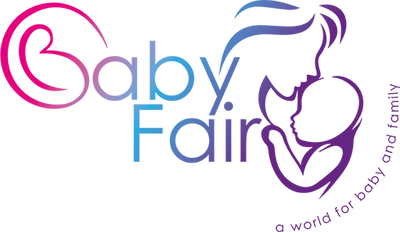Feeding a newborn is both a joyful and challenging experience, especially for parents choosing formula feeding. Knowing the right amount of milk to offer your baby is essential for their healthy growth, comfort, and overall well-being. Unlike breastfed babies, whose intake can be more variable, formula-fed babies follow more measurable feeding patterns.
However, the amount of milk required changes rapidly as your baby grows, making it important to stay informed about feeding guidelines and cues. This guide will help you understand how much formula your baby needs at each stage, how to recognise hunger and fullness signs, and provide essential tips for safe feeding practices. Whether you are a new parent or seeking reassurance, understanding formula feeding basics can ease your journey and ensure your baby gets the best start in life.
How Much Formula Does a Newborn Need?
The amount of formula a newborn needs depends on their age, weight, and hunger cues. In general:
First Few Days:
In the first 24 to 48 hours, a newborn’s stomach is very small—about the size of a cherry. During this time, babies typically consume around 15 to 30 millilitres (0.5 to 1 ounce) per feeding every two to three hours.
1 Week Old:
By the end of the first week, the baby's stomach has grown to the size of an apricot. Feedings will increase to around 60 to 90 millilitres (2 to 3 ounces) every three to four hours.
2 Weeks to 2 Months:
Between two weeks and two months, most babies will drink about 90 to 120 millilitres (3 to 4 ounces) per feeding. They will typically eat every three to four hours, showing signs of hunger such as rooting, sucking on their hands, or crying.
2 to 6 Months:
As your baby grows, they will begin consuming 120 to 180 millilitres (4 to 6 ounces) per feeding, generally spaced about four hours apart.
6 to 12 Months:
From six months onward, most babies will drink about 180 to 240 millilitres (6 to 8 ounces) per feeding, though the frequency may reduce as they start eating solid foods.
How to Know if Your Baby is Getting Enough Formula
Babies communicate their hunger and fullness through various cues. Here are some signs that your newborn is getting the right amount of milk:
Signs of Hunger
- Rooting or turning their head towards a touch on their cheek
- Sucking on their hands or fingers
- Increased alertness and fussiness
Signs of Fullness
- Turning away from the bottle
- Slowing down or stopping sucking
- Relaxing their hands and body
Tracking your baby’s weight gain, wet diapers, and overall contentment also provides important indicators of proper feeding. Newborns typically have six or more wet diapers per day once milk intake is well-established.
General Guidelines for Formula Intake
A common rule of thumb for formula feeding is to offer 150 to 200 millilitres (2.5 ounces) per pound (453 grams) of body weight per day. However, these numbers can vary depending on a baby’s individual needs. Always follow your baby's hunger cues rather than rigidly sticking to a schedule.
| Baby’s Age | Formula Amount Per Feeding | Number of Feedings Per Day |
|---|---|---|
| 0 to 1 week | 15-30 ml (0.5-1 oz) | Every 2-3 hours |
| 1 to 2 weeks | 60-90 ml (2-3 oz) | Every 3-4 hours |
| 2 weeks to 2 months | 90-120 ml (3-4 oz) | Every 3-4 hours |
| 2 to 6 months | 120-180 ml (4-6 oz) | Every 4 hours |
| 6 to 12 months | 180-240 ml (6-8 oz) | Every 4-5 hours |
Important Tips for Safe Formula Feeding
Follow Instructions for Preparing Formula:
Always use the correct ratio of formula powder to water as indicated on the packaging. Too much or too little formula can cause health problems.
Use Safe Water Sources:
Boil water if required or use sterile bottled water to prepare formula.
Proper Bottle Cleaning:
Sterilise bottles and nipples before the first use and clean them thoroughly after each feeding.
Avoid Overfeeding:
Babies naturally regulate their intake. Don’t push them to finish a bottle if they show signs of fullness.
Hold Your Baby While Feeding:
This helps prevent choking and creates a nurturing bond.
Discard Leftover Milk:
Don’t save formula that your baby didn’t finish. Bacteria can grow quickly in leftover milk.
Common Concerns About Formula Feeding
What if My Baby Wants More Milk?
It’s normal for babies to go through growth spurts, during which they may seem hungrier than usual. If your baby consistently finishes their bottle and seems unsatisfied, you can increase the amount by small increments.
Can You Overfeed a Baby with Formula?
While overfeeding is uncommon, it’s still possible. Watching for fullness cues and offering a pacifier or comforting instead of more milk can help avoid overfeeding.
Should I Wake My Baby to Feed?
In the early weeks, waking your baby every three to four hours for feeding is essential if they are not waking on their own, especially for premature or underweight babies. Once your baby gains weight consistently, you can let them sleep longer at night.
Also read: Breastfeeding vs formula feeding - Making the right choice
Conclusion
Understanding how much formula a newborn should drink and recognising their hunger and fullness cues are key to successful feeding. Follow general guidelines for formula amounts, but remember that every baby is unique. By staying attentive to your baby’s needs and practising safe feeding techniques, you’ll ensure your newborn gets the nutrition they need to grow and thrive.

 Free
Free Request Free
Request Free  Build Your
Build Your Fast Delivery on Every Product
Fast Delivery on Every Product 
 Klarna 0% Finance
Klarna 0% Finance 









